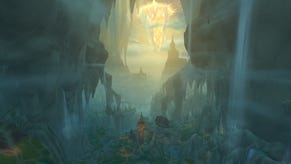Jade Empire: The Game That Bioware Forgot
Jade Empire isn't coming back anytime soon, but it should.
This article first appeared on USgamer, a partner publication of VG247. Some content, such as this article, has been migrated to VG247 for posterity after USgamer's closure - but it has not been edited or further vetted by the VG247 team.
Ten years ago on April 12, Bioware tried something a little bit different. Star Wars: Knights of the Old Republic had launched in 2003 as an Xbox-exclusive, offering up everything Bioware had learned from developing Baldur's Gate, Baldur's Gate II, and Neverwinter Nights on PC platforms. It relied on the popular Star Wars brand and an Xbox-exclusive release to draw mainstream players in. It worked. Star Wars: Knights of the Old Republic was a critical and commerical hit. Bioware was well-loved before KotOR, but the game put them on the map for audience who had never touched their PC titles.
When it came time for a follow-up, Bioware took Knights of the Old Republic's Odyssey Engine and crafted a new fantasy universe. Instead of relying on medieval European fantasy rooted in J.R.R. Tolkien's Lord of the Rings or the popular Dungeons & Dragons pen-and-paper RPG, Bioware instead tapped Chinese mythology. Jade Empire was the result, releasing on April 12, 2005. The game was a "dream project" for Bioware co-founders Dr. Greg Zeschuk and Dr. Ray Muzyka.
"Ray and I have personally wanted to make a game like Jade Empire for nearly ten years," said Zeschuk to GameSpy in 2004. "We've always felt that becoming a martial arts master would be a great experience, and since we're unable to do so in real life we thought that becoming a martial arts master in the Jade Empire would be ideal. There are a number of reasons why we waited until now to create this 'dream project.'"
The biggest change from Bioware's previous work was the simplistic real-time combat system, featuring a light attack, heavy attack, area of effect attack, block, and dodge. The game's action was intended to provide the feel of classic wuxia films, offering up a number of different weapon and fighting styles. Bioware used motion capture for the first time with Jade Empire, as hitting that authentic wuxia feel was key. Unfortunately, while Jade Empire combat was smooth, it never really challenged players; it was good to look at, but simply okay to play.
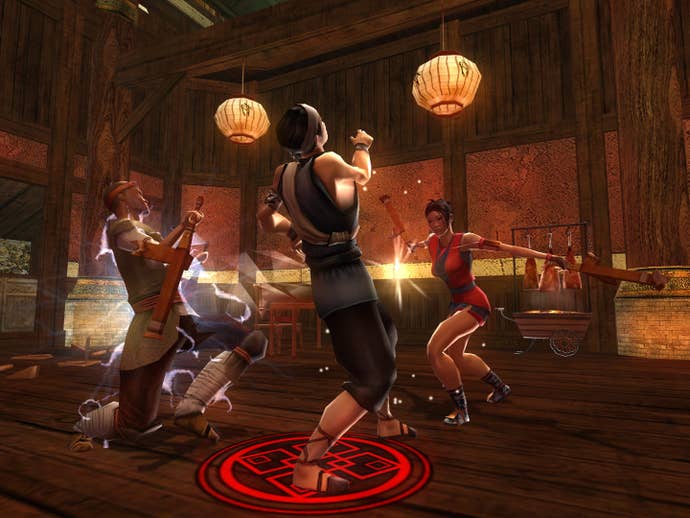
Wuxia itself is a genre of Chinese fiction, usually depicting a lone hero with martial arts skills up against larger, corrupt organizations. (Something that led to many crackdowns and bans of such works over China's long history.) The "xia" part of wuxia refers to a chivalrous code a warrior undertakes to fight for righteousness against oppression. The wuxia films Jade Empire's combat was meant to emulate are largely descended from the works of the Shaw Brothers Studio, including films like Five Fingers of Death, One-Armed Swordsman , Five Deadly Venoms, and The 36th Chamber of Shaolin. Most of the tropes found in Jade Empire are rooted in classic Chinese mythology, but fans of Chinese film found a lot to love in the title.
"Some of the sources of inspiration for the project include what are sometimes called the great Chinese novels: Outlaws of the Marsh, Journey to the West, and Romance of the Three Kingdoms," Jade Empire producer Jim Bishop told IGN prior to the game's release. "In addition we've read stories like Tales from a Chinese Studio, a great deal of Taoist and Buddhist religious literature, modern novels like the excellent Bridge of Birds, and plenty of miscellaneous folk tales and older myths. In addition to all this reading, we watched a lot of movies -- everything from genre-defining films like Hero and Fist of Legend to some, um, less good movies."
Bioware was keen to stress that Jade Empire was inspired by Chinese mythology, but did not take place in China itself. Instead, the studio brought together all of this various mythology to create a world where the fantastic stories were true, where man and god inhabited the same place and co-existed. They even created a fictional Asian language called Tho Fan with the help of University of Alberta linguistic scholar Wolf Wikely.
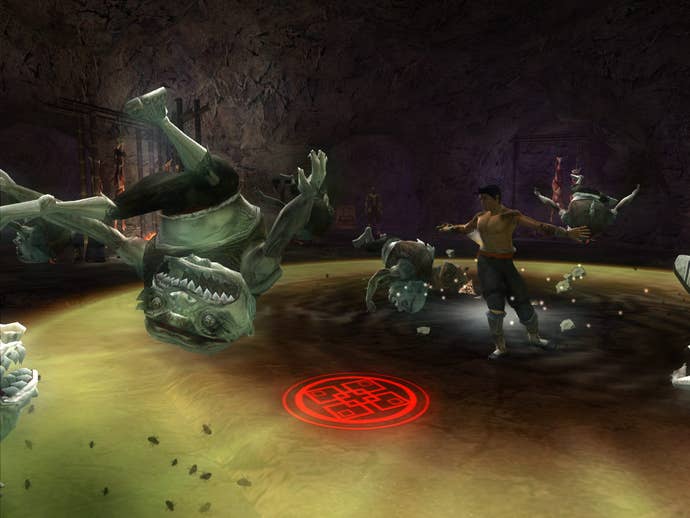
"We developed this language to add personality and a bit more immersion to our world," designed Kevin Martens explained to GameSpy. "Just like Elvish in The Lord of the Rings or Klingon in Star Trek, adding this other dialect to the game made the world seem more realistic and, by extension, more immersive. We didn't want to use an existing Asian language because the Jade Empire is not really Asia, it is simply a fantasy world that is heavily inspired by Asian Fantasy and myth. Tho Fan makes the world a bit more exotic and more fun to explore."
The player is a talent martial arts student of Master Li's small country school, which is attacked in the introduction by the Lotus Assassins, servants of the Emperor, Sun Hai. The Emperor wants to kill the holy Water Dragon to end the empire's long drought, which leaves the barrier between the living and the dead weakened, allowing spirits to roam the land. Before he's kidnapped, Master Li informs the protagonist that they are the last of the Spirit Monks, an order dedicated to protecting the Water Dragon and preserving the balance between the living and the dead. That means it's up to you to gather a posse, stop the Emperor, and save the land.
If you think that sounds like a boilerplate action-adventure story, you're absolutely right. It's the same basic template for many RPG stories: you and your ramshackle crew save the world from impossible odds. The entire game feels like Star Wars or any other epic action-adventure film, filtered through a fannish devotion to wuxia entertainment. Your hero is the last member of a secret order (the Spirit Monks) and before you can stop the current, corrupt ruler (Emperor Sun Hai), you have to take on his fearsome enforcer with a secretive past (Death's Hand). Jade Empire's originality was in its narrative focus, not necessarily its story execution.
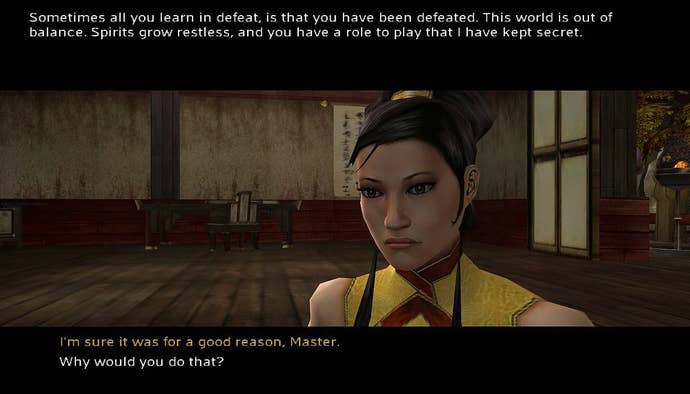
"You" is a bit of misnomer, as Jade Empire doesn't allow you to freely create a character. Instead, you choose between six predefined warriors who are predisposed towards one of the game's three stat categories: Mind, Spirit, and Body. The characters are a potpourri of wuxia tropes, with Furious Ming, Lu the Prodigy, and Tiger Shen on the male side, and Radiant Jen Zi, Scholar Ling, and Wu the Lotus Blossom on the female side. (The Special Edition later added Monk Zeng as an additional character.)
With your chosen character, you then head out into the world to find justice, backed by a supporting cast of unique misfits. Fellow student Dawn Star and former Lotus Assassin Sagacious Zu are the base followers, but you can also pick up princess-turned-assassin Silk Fox, Sky, a thief out for revenge, Wild Flower, a young spirit girl who shares an existence with spirit guardian Chai Ka and demon Ya Zhen, or many more if you know the way to their hearts. My personal favorite is the explosion-happy Kang the Mad, with a close second being the almighty Henpecked Hou. And who can forget Sir Roderick Ponce Von Fontlebottom the Magnificent Bastard (voiced by John Cleese) who simply wanted to educate the "backwards" folk of the Jade Empire?
Like KotOR, your player character has a specific alignment based on your choices during the game: will you follow the benevolent Path of the Open Palm, or the aggressive Path of the Closed Fist? The paths were intended by Bioware to be "muddier" than the clear delineation between the light and dark sides in Knights of the Old Republic. Jade Empire's alignment system isn't about what you do, but why you did it. Open Palm was about finding your place within nature and your surroundings, while the Closed Fist path prizes self-determination and willpower.
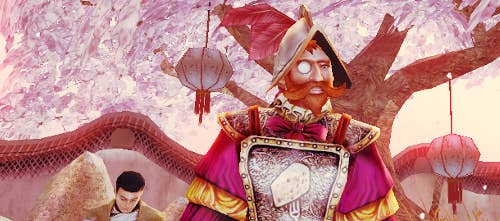
"What is 'evil' to one person is simply practical to another," said Martens. "What is clearly the right thing to do to one group of people is purely evil to another. The player is presented with these competing views on what is right and what is wrong all of the time and must often choose between the two. The player often gets a chance to explain or give reasons for his choices and it's the way that the player justifies his or her actions that reveal what side of the philosophical fence that they fall on."
This is probably the strongest aspect of Jade Empire, in comparison to the basic light/dark split you'd later find in Mass Effect or Dragon Age, even if it doesn't always work as intended.
Another contrast to Bioware's other console RPGs is Jade Empire only allowed a single follower on the battlefield; your followers are always available in your party, but only one is allowed in combat with you and that follower is completely AI-controlled. This design decision was a side effect of the real-time combat system, as Bioware felt the action combat would've been too hectic otherwise. I admit, that sometimes, your followers are less than useless, being little more than another body you occasionally keep track of on screen.
The benefit of the system is Jade Empire's followers actually feel like followers, not other extensions of your will. You can and will think they've made the wrong decisions in combat, and they'll let you know when they think you've made the wrong decisions outside of combat. It's an added dimension to each character, even if you'll likely choose your companion based on holes in your character build.
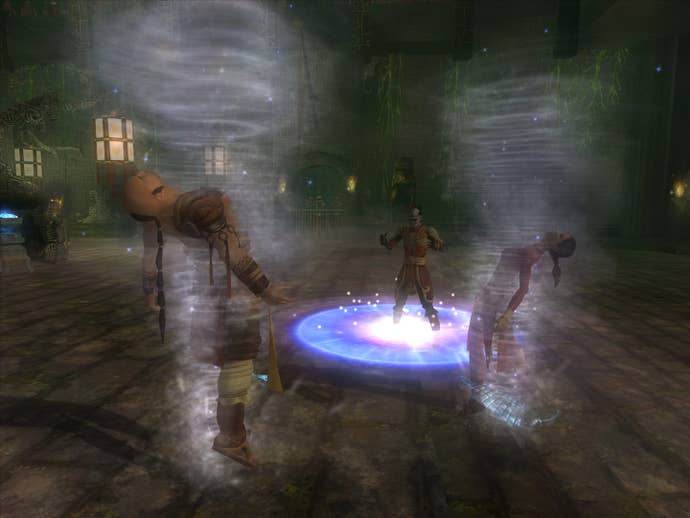
Jade Empire was such a unique game for Bioware, but it's one the studio never followed up on. A sequel was on the table after the launch of the first game, but it never materialized. 2007's Mass Effect was the last "Bioware" release as an independent studio - though Sonic Chronicles for Sega came out a year later - as Electronic Arts picked up the studio in October of that year. Since acquisition by EA, Bioware has been a developer of three pillars: Mass Effect, Dragon Age, and Star Wars. Jade Empire is simply the odd duck, not fitting into the studio's current remit.
Back in 2011, the Bioware co-founders told an audience at Eurogamer Expo that Jade Empire was still on their minds.
"We've been talking a lot about that actually on and off over the years," said Ray Muzyka, BioWare CEO. "It's an IP, it's a setting that we're really passionate about, and we still are. Both Greg and I were big believers in the IP. We're just looking for the right way to deploy it. We have a lot of different projects now on a lot of different platforms, and you might see some of that [Jade Empire] in the future. You never know."
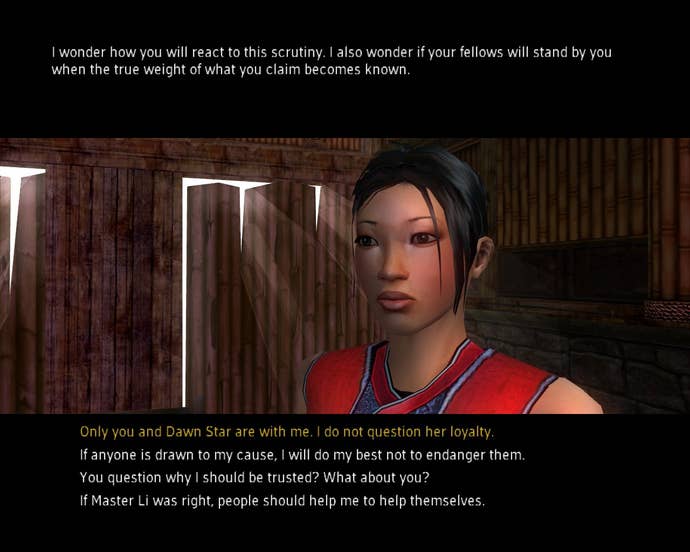
A year later, both co-founders announced that they'd be retiring from the games industry completely, removing two of the IPs biggest supporters. In an interview with GI.biz after his retirement, Zeschuk listed the handling of Jade Empire as one of his regrets.
"If we could have really pulled it off, I think making Jade Empire a 360 launch title would have been massive," he said. "That's a really specific example, but we made a choice, and there are a lot of factors that go into these choices and you can't revisit them. But it's interesting, because it reminds me of what's going on right now with analysts saying that game sales are down because people are waiting for new consoles, and we released Jade Empire into that kind of window. In retrospect, it would've been great to put off a bit and polish the game a bit more."
In Jade Empire, Bioware has a whole world to explore that's nothing like any competitor. While fantasy titles like The Witcher or Elder Scrolls may share some similarities with Dragon Age, Jade Empire stands alone. I may not need the continuing stories of Sagacious Zu or Silk Fox, but there's a rich sense of history in the original title that begs to expanded upon. How about improving the game's action combat even further? Imagine a game with Devil May Cry style combat, but the characters and story of a Bioware title? It's a magnificient dream.
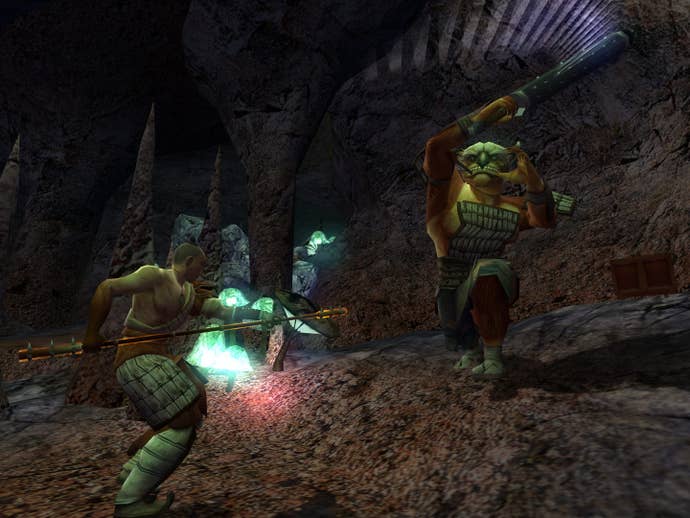
The studio is working on an all-new IP, so I'm hopeful that it can create something that occupies such a unique position as the original Jade Empire did. I've always been a fan of RPGs outside of the normal sci-fi/fantasy vein; even noble failures like Alpha Protocol are much loved. (If anyone wants to create a horror or espionage RPG, I'm down.) Jade Empire was not only a unique action RPG, it's also one of a handful of major games from a Western studio that focused on East Asian culture. In a world that has become less about international boundaries and more welcoming of diverse stories, a follow-up to Jade Empire is an excellent idea. It's just a matter of EA and Bioware understanding that.


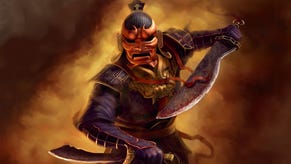
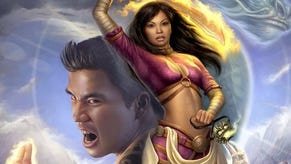
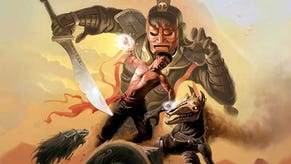
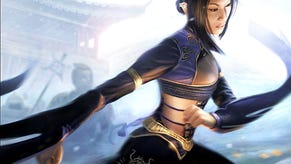
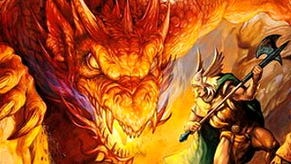
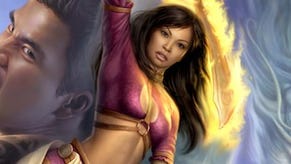
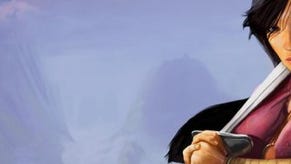
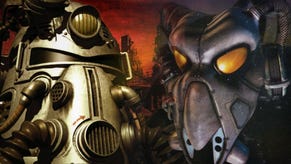

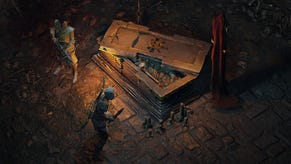
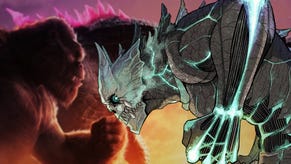
_ddwYK80.png?width=291&height=164&fit=crop&quality=80&format=jpg&auto=webp)
